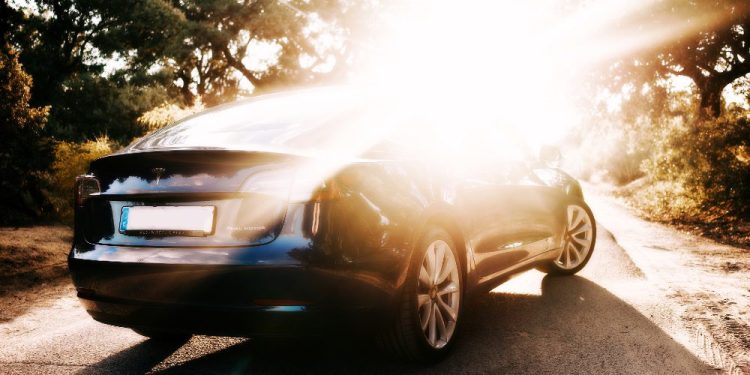(Natural News)—The push for electric vehicles (EVs) is “the most ill-conceived government policy objective in modern history.
This was according to Ron Ross, a former economics professor and author of “The Unbeatable Market.” Ross said the push to convert or turn in internal combustion engine (ICE) vehicles for their electric counterparts is a hopeless Democrat-led environmentalist goal.
Ross added that the transition has no chance of success because it is full of various deal breakers, including how EVs are prone to causing accidents and other safety issues.
An ambitious goal like the total conversion from ICE vehicles to EVs needs “careful planning and infrastructure preparation,” he said. It also requires the massive expansion of the American power grid – a virtually impossible task. (Related: Electric vehicles are unreliable and not cost-efficient – especially in cold weather.)
Car dealers are already resisting further deliveries of EVs because their current stocks have swelled and not that many people are interested in swapping out their reliable ICE vehicles for the newer electric cars.
Yet, manufacturers are still ramping up production even as consumers are balking at getting an EV.
“Something will have to give, and soon,” said Ross. “EV makers and their shareholders will tire of pouring money down a rathole.”
Disadvantages of owning an EV in 2023
There are a variety of other reasons why owning an electric car is a serious disadvantage. For starters, the average EV retails for $61,000, which makes most consumers think of a luxury car.
A new gas-powered car is around $20,000 cheaper. But EV prices can surge faster during crisis periods, such as when the supply chain disruptions of 2022 caused the prices of EVs to skyrocket when essential car components like lithium and nickel became more expensive.
The supposed maximum ranges of EVs are also likely to be overestimated. Some of the most advanced EVs can only promise a maximum of 380 miles in so-called “normal conditions,” such as when driving on less congested highways and when the weather is a little warmer.
In cities with heavy traffic and during cold weather periods, these ranges could be cut immensely, and EV owners are forced to make their own intuitive judgments about how far they can get based on their battery percentages.
Relying on EV charging stations also might not be an option, especially for longer drives. Even the country’s most populous states don’t always have a lot of public charging spots outside of large cities.
EV owners have to plan their routes based on the availability of EV charging stations and the number of charging ports these places have. Relying on free or low-cost charging isn’t always an option, and paying for charging spots could easily ramp up costs for EV owners.
Owners of Tesla vehicles may rely on the more common supercharging stations. However, owners of non-Tesla EVs are out of luck as the company’s charging stations are not compatible with other cars in the United States. This situation has only changed in Europe, where regulations have forced Tesla to make their charging stations compatible with those of other EV manufacturers.
This effectively means there is a tiered system for EVs in the U.S., where the availability of services like charging stations depends on how much people paid for their EVs and from which manufacturers they got their EVs.
Visit RoboCars.news for more articles about the disadvantages of electric cars. Watch the video below to see how electric car owners call for new rules following “charge rage” as Teslas queue for hours.
This video is from The Prisoner channel on Brighteon.com.
More related stories:
- EV COLLAPSE: Electric vehicle manufacturer Lordstown Motors files for bankruptcy.
- Electric vehicles are a SCAM – here’s why.
- Electric vehicle plant in Michigan run by COMMUNISTS pushing Chinese ideology: “I volunteer to join the CCP,” say employees wearing Red Army outfits.
Sources include:
Don’t wait for a stock market crash, dedollarization, or CBDCs before securing your retirement with physical precious metals. Genesis Gold Group can help.
What Would You Do If Pharmacies Couldn’t Provide You With Crucial Medications or Antibiotics?
The medication supply chain from China and India is more fragile than ever since Covid. The US is not equipped to handle our pharmaceutical needs. We’ve already seen shortages with antibiotics and other medications in recent months and pharmaceutical challenges are becoming more frequent today.
Our partners at Jase Medical offer a simple solution for Americans to be prepared in case things go south. Their “Jase Case” gives Americans emergency antibiotics they can store away while their “Jase Daily” offers a wide array of prescription drugs to treat the ailments most common to Americans.
They do this through a process that embraces medical freedom. Their secure online form allows board-certified physicians to prescribe the needed drugs. They are then delivered directly to the customer from their pharmacy network. The physicians are available to answer treatment related questions.





